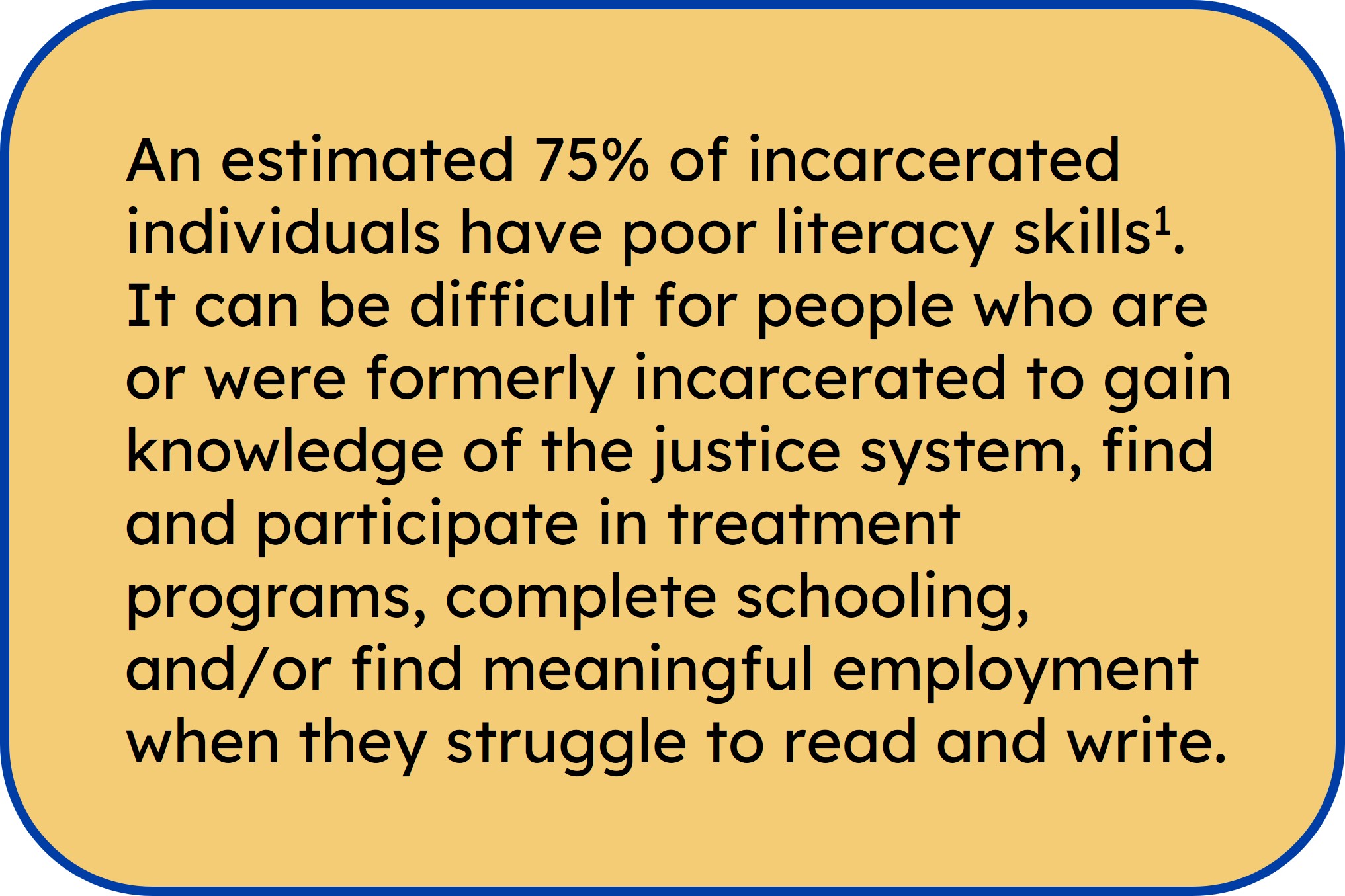
Literacy programs within the justice system change lives for the better. These programs offer an opportunity for transformation and to access otherwise out-of-reach resources.

Wilson Language Training® (WLT) Senior Literacy Specialist Jane O’Mahoney is part of a team of WLT representatives and dedicated teachers working with the Rhode Island Department of Corrections (RIDOC) to address literacy needs in the criminal justice system by teaching Just Words® in prison classrooms. “Education is a social justice issue, especially literacy,” Jane said.
A partnership between RIDOC and nearby educational institutions provides classes such as General Educational Development (GED) and literacy programs for individuals in prison. Class attendance is voluntary. Students can participate to earn points toward extra privileges or even a reduction in their sentences. Good behavior in class is required to stay enrolled in the program.

With experience working with students with high emotional need as well as teaching in a therapeutic day school, Jane was eager for an opportunity to support teachers working with a population that requires similar care and dedication. Jane’s first task was to let the prison’s teachers see Just Words in action.
“The teachers are used to having students who can read a little. But they can’t read, write, or spell well enough to pass the GED test,” Jane explained. “They weren’t aware of how Just Words could meet their needs at first.”
Jane modeled teaching Just Words lessons to show the impact even one lesson can have on student learning and confidence.
On her first day in the classroom, Jane followed the lesson plan exactly as written. While it went reasonably well, she realized she needed to make some adjustments to address the students’ needs. “The next session, I did a different introduction to the lessons,” Jane noted. “What I said to them was, ‘You’re trying to pass the GED. What holds you up the most?’”
Her class explained that they struggled with the essay portion of the GED test because they had trouble with spelling. Moreover, they relied on rote memorization to learn spelling with little to no success. It was clear that explicit structured literacy instruction was needed.
Jane replied, “What if I told you that you only need to know six patterns to help you know how to spell all the words?”
The students were intrigued and ready to learn as she introduced them to four of these syllable types: closed, vowel-consonant-e, open, and r-controlled. They participated in games and tapped out nonsense words. Soon, the class was able to identify the syllable patterns in new words.
“There is a huge need for literacy education for the prison population that goes unmet.”
Jane O’Mahoney, WLT Senior Literacy Specialist
“This year, we were testing the waters and learned a ton,” Jane noted. “There is a huge need for literacy education for the prison population that goes unmet.”
Jane continues to visit the prison as often as possible to guide and encourage teachers as they deliver instruction in a way that benefits their students most. She cites the team of “skilled, compassionate, and savvy” teachers as part of the reason the students are responding so well to the lessons.
WLT is eager to continue supporting the teachers who bring effective literacy instruction to prisons through Just Words with sensitivity toward safety requirements and the prison population’s needs.
Like any learners, people living in prison benefit from consistency in their education. Some participants were hesitant to commit to this new mode of instruction until Jane explained to them that the other prison teachers would continue the lessons after she left. One learner exclaimed to his teacher, “Miss, we need more of this!”
1 Herrick, E. (1991). Prison Literacy Connection. Corrections Compendium, 16(12), 5–9. https://www.ojp.gov/ncjrs/virtual-library/abstracts/prison-literacy-connection